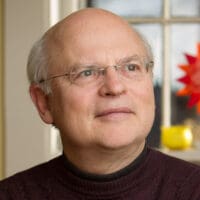Overview
As we have seen, scientists are actively studying contemplative practices to understand how they can affect the brain and body. However, these practices are also being used in diverse applied contexts to increase well-being, most commonly in health care and educational settings. Sona Dimidjian has studied both traditional and contemplative based therapies for promoting wellness and alleviating problems such as depression throughout the United States and in India. Her current work focuses on the use of Mindfulness Based Cognitive Therapy to help women prevent depression during the transition to parenthood. Dimidjian will discuss the efficacy of contemplative interventions in clinical contexts, theories and data about how such interventions work, and recent efforts to extend their reach to new settings and populations. Outside the clinic, contemplative exercise as mental training is being increasingly appreciated and applied in classrooms from kindergarten through universities and professional schools. Arthur Zajonc will discuss efforts at developing a “contemplative pedagogy,” as a means of cultivating attention, establishing emotional balance, and supporting deeper learning, creativity, as well as social and emotional learning in students. Zajonc will also describe Mind and Life’s new initiative on education and “secular ethics,” which was initiated in response to His Holiness’s strong desire to ground ethics in our shared humanity and not in religion or ideology. Finally, Geshe Ngawang Samten will reflect on the value of incorporating inner values, ethics of compassion and the understanding of interdependence in educational settings in India.
- Dialogue 2627 sessions
- January 21, 2013Drepung Monastery, Mundgod, India


